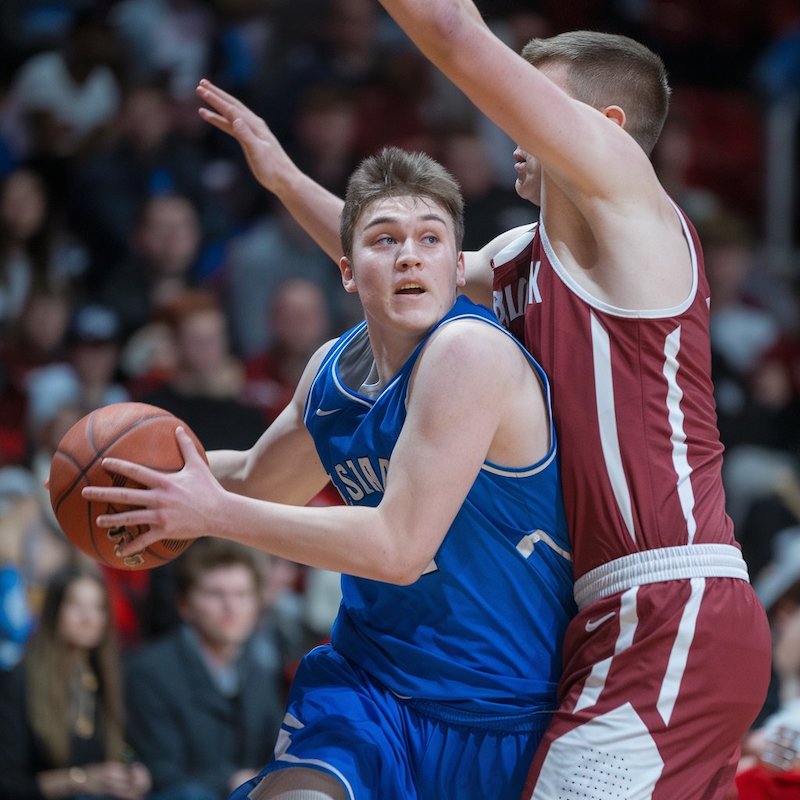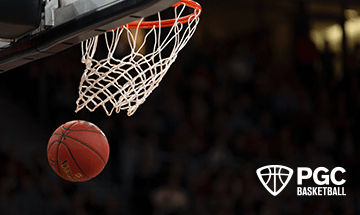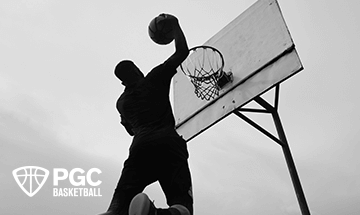Defend Like Draymond
– Think The Game Thursday –
Most players tend to go through the motions on defense but Draymond Green takes great pride in being an elite playmaker on the defensive end of the floor. Watch as PGC Director Jayson Wells breaks down what you can learn from Draymond to become a better defender.
Think Deeper
How to Track Non-Shooting Improvements
There are several basketball skills that are hard to measure including ball-handling, passing, rebounding and defense. But in order to track improvement, some method of measurement is necessary. In the spirit of Galileo, here are some ways one can quantify the seemingly unquantifiable.
Count & Time
A good way to make any basketball drill measurable is to attach a count and time.
With ball handling, for example, an athlete should train with intensity and pace (in addition to technique, of course). Rehearse each dribble type (pounds, v-dribbles, in & outs, between the legs, behind the back, crossovers, etc) daily for 30-60 seconds and attach a count to each type. Every day, increase the number of repetitions for each specific dribble.
For example, attempt to complete 75 (or more) pound dribbles at the shoulder level as fast and as hard as you can within 30 seconds. This practice will not only improve your wrist and hand dexterity but also your handle (control of the ball). The harder you dribble the ball the less likely you are to lose it.
As you improve your control of the ball and strengthen your hand and wrist, begin to increase the number of dribbles you can complete within the same time period.
Structured play
We don’t train for the sake of training; we train to improve our play. Play is a vital aspect of development. Through structured play, athletes can better measure the improvement of their basketball skills.
Although a pick-up game, by its nature, can be loosely organized, you can impart some structure by setting rules or benchmarks for yourself.
Here are some examples of how to structure your play in pickup settings.
- Play an “All Assist” game. Other than taking blatantly open shots, focus on using timely and crisp passes throughout the game. (This will have the added benefit of making your teammates happy!)
- Play a “Defense & Rebounding” game.
- Attempt to grab every rebound on the offensive and defensive end.
- Following an offensive rebound, work on your put-backs and second jump.
- Guard “a man-and-a-half.”
- Try to hold whoever you are guarding scoreless
- Be your team’s vocal leader on defense (hold yourself and everyone accountable)
- Possession
- Try to win five possessions in a row
- Come up with a stop and then making a basket on five back-to-back trips.
- Try to win five possessions in a row
This is very challenging and requires leadership and communication.
As you work on all your skills, remember to keep in mind the purpose for all your training and preparation: every player is part of team and we train to help our team be successful by being the BEST version of ourselves.
As you work on the skills that are difficult to measure, remember that mistakes and shortcomings are part of the journey.
“We obsess over perfection while forgetting the process of imperfection it takes to get there.” —Unknown
Remember that although you will probably never do anything perfectly, you can always give perfect effort. Experimenting and making mistakes is a natural part of development and improvement. Embrace the long walk to greatness.
Related Articles
5 Habits That Can Make Undersized Point Guards Unstoppable
When it comes to basketball, size isn’t everything. For undersized point guards, mastering specific skills and habits can not only level the playing field but also make them truly unstoppable.
How To Win The Inner-Game of Basketball (and Life)
As a basketball player, just like so many other walks of life, players do not operate at max capacity because they are extremely hard on themselves and are losing the ‘inner game.’
What Does It Mean To Be Self-Disciplined?
In the game of basketball, self-discipline is a word that all coaches want players to embody on a daily basis. The word ‘Discipline’ is used for some teams as their standard of excellence, for others it is a pillar that their culture is built upon.
About PGC
PGC Basketball provides intense, no-nonsense basketball training for players and coaches. Our basketball camps are designed to teach players of all positions to play smart basketball, be coaches on the court, and be leaders in practices, games and in everyday life.
We combine our unique PGC culture with a variety of teaching methods and learning environments to maximize the learning potential of those that attend our sessions. In addition to spending 6-7 hours on the court each day, lessons will be reinforced through classroom sessions and video analysis.
Our goal at PGC is to empower you with the tools to fulfill your basketball dreams, while also assisting you in experiencing the joy of the journey.
To learn more about PGC Basketball, including additional basketball training tips and videos, visit our YouTube Channel or find us on Facebook, Instagram, and Twitter.















Share This Post